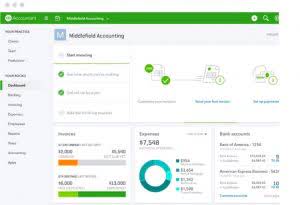Content
Lo Scudo Piumato ci protegge dagli imprevisti, il Booster Turbo ci fa guadagnare terreno quando il traffico si fa serrato. Saperli attivare al momento giusto fa la differenza tra una partita da record e una fermata imprevista. Valutiamo sempre la situazione prima di usarli, così da non restare mai scoperti nei round più difficili e da spingere il punteggio alle stelle quando serve.
Chicken Road dove giocare
Per ottenere questo eccezionale Bonus del Casinò Chicken Road, dovrai percorrere l’intero tragitto pericoloso senza trasformarti in un “pollo fritto”. Occorre tenere presente che, ad ogni turno, esiste sempre il rischio concreto di perdere l’intera somma puntata nel round corrente. Chicken Road è un crash game innovativo che combina velocità, strategia e un pizzico di fortuna. Il suo meccanismo si basa su un moltiplicatore che cresce progressivamente, offrendo ai giocatori la possibilità di incassare la loro vincita prima che il gioco si interrompa.
Migliori Casinò Italiani Autorizzati che Offrono Chicken Road
Attenzione, una volta cliccato su “Play”, il pollo attraversa il primo ostacolo. Ormai lo sapete, Chicken Road è un gioco estremamente divertente, ma come tutti i giochi d’azzardo, può comportare dei rischi. È per questo motivo che abbiamo selezionato solo siti che si prendono cura del benessere dei propri utenti e che mettono in atto strategie per aiutare chi ne ha bisogno.
Questi bonus possono darti denaro extra per giocare, scommesse gratuite e persino cashback sulle perdite. Ma prima di tuffarti, vediamo cosa c’è là fuori e come https://tuttosuivideogiochi.it/2025/02/28/chicken-road-gioca-con-soldi-veri-casino-online/ sfruttarlo al meglio. Tutti i casinò online della nostra selezione offrono, senza eccezione, una sezione dedicata al “gioco responsabile”. Questa sezione informa sui rischi legati al gioco d’azzardo e fornisce l’accesso a enti di supporto competenti. Questo sistema rende il gioco perfetto per chi ama il rischio e l’adrenalina, ma può essere spietato per chi gioca senza strategia.
App Casino Dedicate
I metodi più usati includono bonifici bancari, carte di credito e portafogli elettronici. Alcuni casinò permettono anche il prelievo in criptovalute, ma solo dopo la verifica del conto. Le commissioni dipendono dal metodo scelto, ma spesso sono assenti o molto basse.
Livelli di difficoltà del gioco
Le Zone Sicure forniscono una breve tregua, mettendo in pausa il traffico per tre secondi così puoi pianificare la tua prossima mossa. Tieni d’occhio le Piume Bonus—raccogli tre piume dorate per un premio istantaneo di 50x. La Cronologia Round mostra gli ultimi 50 moltiplicatori raggiunti da tutti i giocatori nella lobby, aiutandoti a valutare i pattern attuali del gioco.
Questa fedeltà visiva migliorata aiuta i giocatori a immergersi nel mondo fantasioso di Chicken Road 2. È possibile giocare a Chicken Road nei casinò online più accreditati che presentano titoli di InOut Games, basta assicurarsi che la piattaforma sia autorizzata e affidabile. Le auto sfrecciano, gli ostacoli aumentano, ma più il pollo corre… più cresce il moltiplicatore della tua puntata. Si prega di notare che tutte le informazioni fornite sono solo a scopo informativo e non costituiscono consulenza legale.





